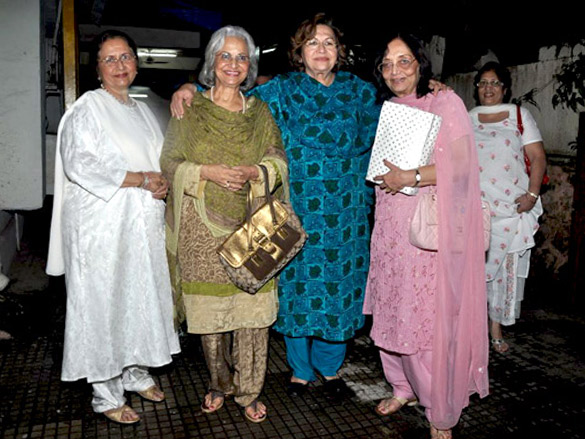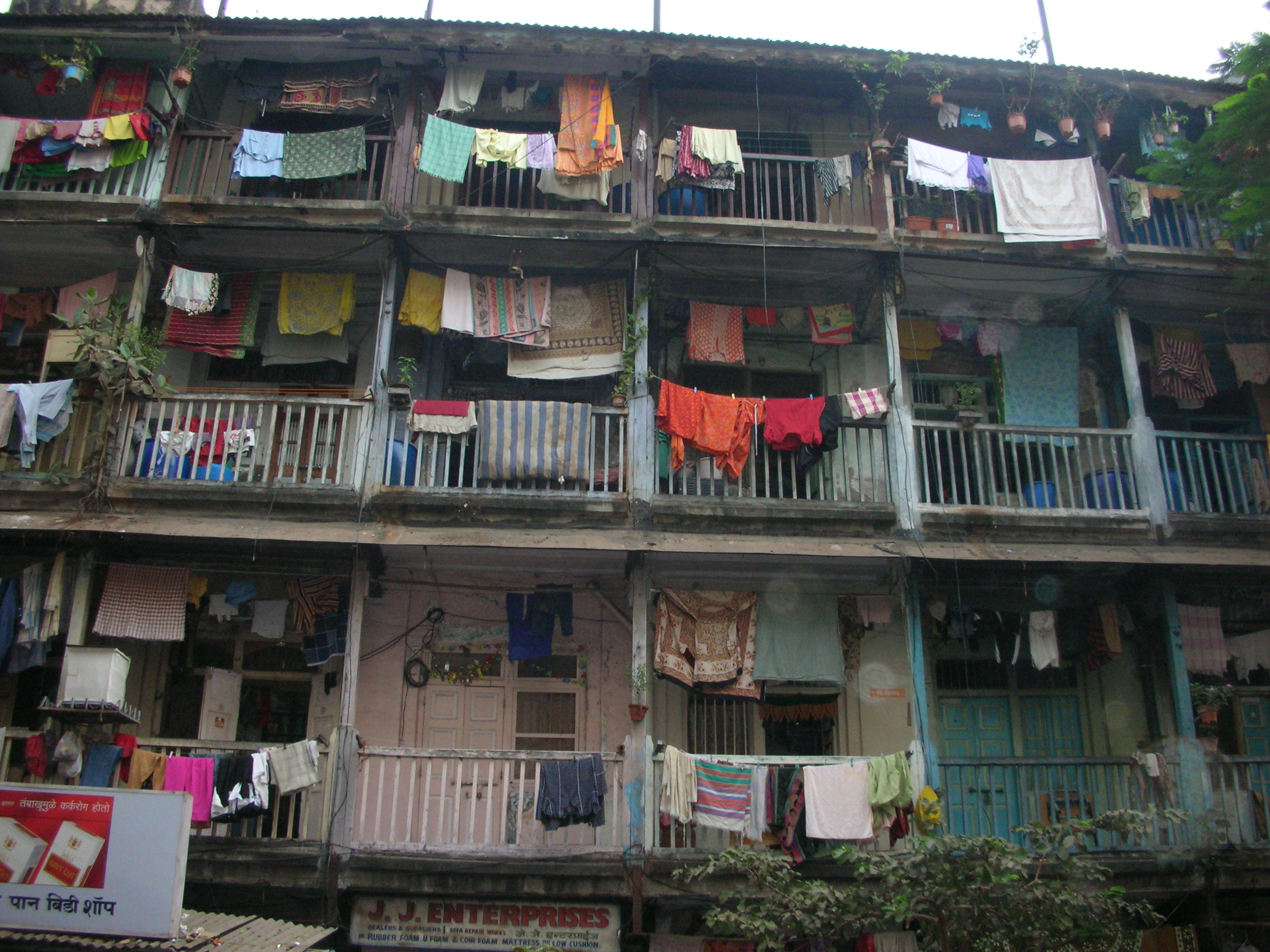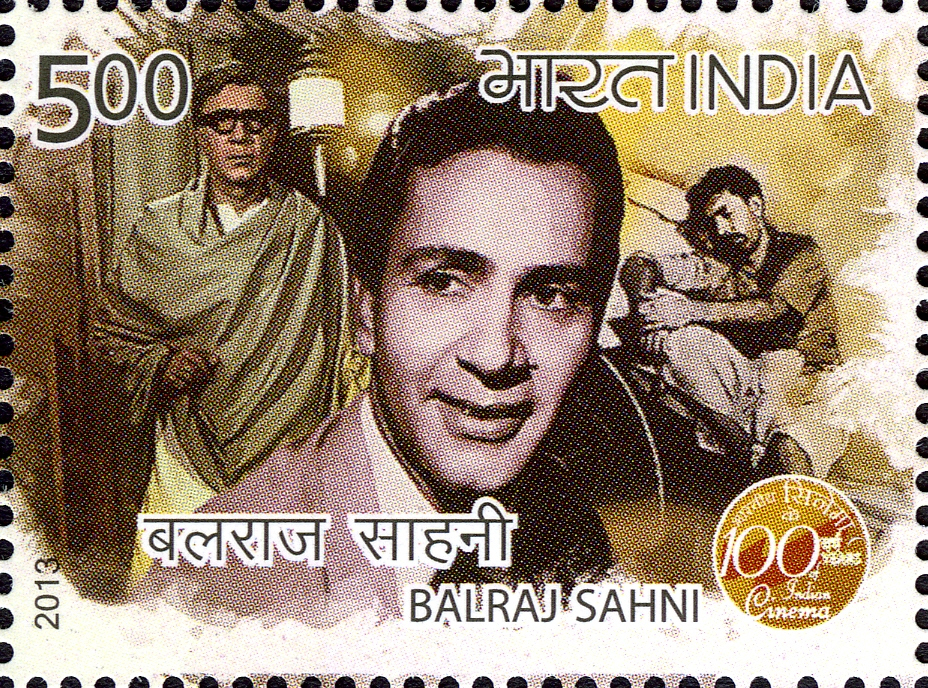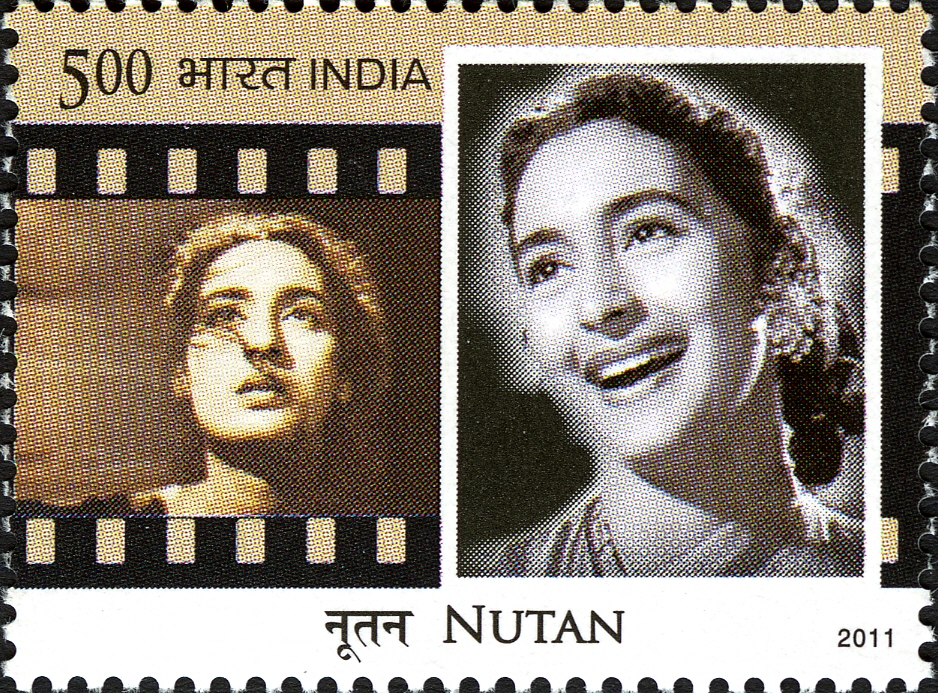|
Ravindra Dave
Ravindra Dave (16 April 1919 – 21 July 1992) was an Indian film director, producer, editor and screenwriter. He directed more than 30 Hindi Cinema, Hindi films in the 1950s and 1960s including several hits like ''Nagina'' (1951), ''Agra Road (1957 film), Agra Road'' (1957), ''Post Box 999'' (1958), ''Satta Bazaar'' (1959), ''Dulha Dulhan'' (1964) and ''Raaz (1967 film), Raaz'' (1967). He turned to Gujarati cinema with his blockbuster ''Jesal Toral'' (1971) and directed more than 25 Gujarati films in the 1970s and 1980s. Early life Ravindra Dave was born on 16 April 1919 in Karachi, British India (modern day Pakistan) in a Brahmin family. His family belonged to Halvad (modern day Gujarat, India). At the age of 14, he joined his uncle Dalsukh M. Pancholi in Lahore as a production manager for his Punjabi films. He learned editing from producer and director Shaukat Hussain Rizvi. Career Hindi cinema Dave directed two songs for ''Shiri-Farhad'' in 1942, which was left incomplete ... [...More Info...] [...Related Items...] OR: [Wikipedia] [Google] [Baidu] |
Karachi
Karachi is the capital city of the Administrative units of Pakistan, province of Sindh, Pakistan. It is the List of cities in Pakistan by population, largest city in Pakistan and 12th List of largest cities, largest in the world, with a population of over 20 million. It is situated at the Geography of Pakistan, southern tip of the country along the Arabian Sea coast and formerly served as the Federal Capital Territory (Karachi), country's capital from 1947 to 1959. Ranked as a Global city, beta-global city, it is Pakistan's premier industrial and financial centre, with an estimated GDP of over $200 billion (Purchasing power parity, PPP) . Karachi is a metropolitan city and is considered Pakistan's most cosmopolitan city, and among the country's most linguistically, ethnically, and religiously diverse regions, as well as one of the country's most progressive and socially liberal cities. The region has been inhabited for millennia, but the city was formally founded as the ... [...More Info...] [...Related Items...] OR: [Wikipedia] [Google] [Baidu] |
Poonji
''Poonji'' is a Bollywood film. It was released in 1943. The film was directed by Ravindra Dave and Vishnu R. Pancholi. It starred M. Esmail, Durga Mota, Ragini in lead roles. Plot The film revolves around three sisters trying to prevent their father from remarrying. Production The film was a debut of directors Ravindra Dave Ravindra Dave (16 April 1919 – 21 July 1992) was an Indian film director, producer, editor and screenwriter. He directed more than 30 Hindi Cinema, Hindi films in the 1950s and 1960s including several hits like ''Nagina'' (1951), ''Agra Road ( ... and Vishnu R. Pancholi. The film was produced by Dalsukh M. Pancholi. The film starred M. Esmail, Durga Mota, Ragini in lead roles. The music was directed by Ghulam Haider. Reception The film was released in 1943 and declared commercially hit. The ''Film India'' (December 1943) magazine noted, "A film that entertained and yet made a substantial contribution to the screen art of the country... The p ... [...More Info...] [...Related Items...] OR: [Wikipedia] [Google] [Baidu] |
Abhi Bhattacharya
Abhi Bhattacharya (20 November 1921 – 11 August 1993) was an Indian actor of Hindi and Bengali cinema, who is most remembered for his roles in films of the 1950s and the 1960s, such as '' Yatrik'' (1952), ''Jagriti'' (1954), '' Anuradha'' (1960), '' Subarnarekha'' (1965) and '' Amanush'' 1975. In his four decade long acting career he performed in more than 150 films in Hindi and 21 in Bengali. Abhi Bhattacharya worked with eminent film directors of India such as Ritwik Ghatak, Guru Dutt, Bimal Roy and Satyen Bose. Early life Abhi was born in a village close to ''Rajshahi'' town of undivided Bengal (now in Bangladesh). He lost his mother at the age of seven. After his father remarried, young Abhi was sent to '' Gaya (India)'' to live with his maternal uncle where he spent his formative years. He did well in school and sports. His aunt inculcated in him the love for drama, music and poetry, particularly those of Rabindranath Tagore. Gradually he developed a passion for fil ... [...More Info...] [...Related Items...] OR: [Wikipedia] [Google] [Baidu] |
Geeta Bali
Geeta Bali (born Harkirtan Kaur; 15 November 1930 ‒ 21 January 1965) was an Indian actress who worked in Hindi films. Bali is regarded among the finest actresses in the history of Indian cinema, Bali acted in over 75 films in a career spanning over two decades. She was twice nominated for Filmfare Awards. She started her career as a child artist with ''The Cobbler'' (1942) and had her first success with '' Sohag Raat'' (1948). After working in '' Badi Bahen'' (1949), Bali went onto establish herself as a leading lady of the 50s with films such as '' Bawre Nain'' (1950), '' Albela'' (1951), '' Baazi'' (1951), '' Jaal'' (1952), '' Anand Math'' (1952), '' Vachan'' (1955), ''Milap'' (1955), '' Faraar'' (1955), '' Jailor'' (1958) and '' Mr. India'' (1961). For ''Vachan'', she was nominated for Filmfare Award for Best Actress. She married actor Shammi Kapoor in 1955, with whom she has two children including actor Aditya Raj Kapoor. Bali died in 1965 due to small pox. Early life ... [...More Info...] [...Related Items...] OR: [Wikipedia] [Google] [Baidu] |
Sadhana Shivdasani
Sadhana Shivdasani (2 September 1941 – 25 December 2015), known mononymously as Sadhana, was an Indian actress who worked in Hindi films. Regarded among the most popular actresses of Hindi Cinema, Sadhana was noted for her exquisite beauty and trend-setting fashion statements. She was popularly known as "The Mystery Girl" for her stint as the "mystery girl" in the suspense thriller trilogy films directed by Raj Khosla during the mid 1960s. Born in Karachi, Sadhana and her family migrated to Bombay during the partition of India when she was 7 years old. After making an uncredited appearance in ''Shree 420'' (1955), Sadhana became the protègè of the director Sashadhar Mukherjee, who cast her in '' Love In Simla'' (1960), where her distinctive hairstyle became a rage and came to be known as "Sadhana Cut". Following this success, Sadhana went on to establish herself as a leading actress with films like - '' Parakh'' (1960), '' Hum Dono'' (1961), '' Asli-Naqli'' (1962), '' Ek M ... [...More Info...] [...Related Items...] OR: [Wikipedia] [Google] [Baidu] |
Raj Kapoor
Raj Kapoor (; born as Shrishti Nath Kapoor; 14 December 1924 2 June 1988; also known as Ranbir Raj Kapoor) was an Indian actor, film director and producer, who worked in Hindi cinema. He is considered to be one of the greatest and most influential actors and filmmakers in the history of Indian cinema, and has been referred to as ''The Greatest Showman of Cinema of India, Indian Cinema'' and as the ''Charlie Chaplin of Indian Cinema''. Born in Peshawar as the eldest son of Prithviraj Kapoor of the Kapoor family, Raj Kapoor starred in and produced many films for which he received List of awards and nominations received by Raj Kapoor, multiple accolades, including three National Film Awards and 11 Filmfare Awards in India. He was inspired by Charlie Chaplin and played characters based on The Tramp in films, such as ''Awaara'' (1951), ''Shree 420'' (1955) and ''Mera Naam Joker'' (1970). His performance in ''Awaara'' was ranked as one of the "Top-Ten Greatest Performances of All Tim ... [...More Info...] [...Related Items...] OR: [Wikipedia] [Google] [Baidu] |
Dulha Dulhan
''Dulha Dulhan'' is a 1964 Indian Bollywood film produced and directed by Ravindra Dave. It stars Raj Kapoor and Sadhana Shivdasani Sadhana Shivdasani (2 September 1941 – 25 December 2015), known mononymously as Sadhana, was an Indian actress who worked in Hindi films. Regarded among the most popular actresses of Hindi Cinema, Sadhana was noted for her exquisite beauty an ... in pivotal roles together for the first time. Soundtrack References External links * 1960s Hindi-language films 1960s Indian films 1964 films Films scored by Kalyanji Anandji {{1960s-Hindi-film-stub ... [...More Info...] [...Related Items...] OR: [Wikipedia] [Google] [Baidu] |
Meena Kumari
Meena Kumari (born Mahjabeen Bano; 1 August 1933 – 31 March 1972) was an Indian actress and poet, who worked in Hindi films. Known as "The Tragedy Queen", she is regarded among the finest and greatest actresses in the history of Indian cinema. In a career spanning 33 years, from child actress to adult, Kumari starred in over 90 films. Kumari won four Filmfare Awards in the Best Actress category. She was the recipient of the inaugural Filmfare Best Actress Award for '' Baiju Bawra'' in 1954 and had a consecutive win in the second Filmfare Awards (1955) for '' Parineeta''. Kumari made history at the 10th Filmfare Awards (1963) by receiving all three of the Best Actress nominations, and won for her performance in '' Sahib Bibi Aur Ghulam''. In the 13th Filmfare Awards (1966), she won her last Best Actress award for '' Kaajal''. Critics have noted that her character in ''Sahib Bibi Aur Ghulam'' is similar to her life. She also went onto appear in other successful films such as ... [...More Info...] [...Related Items...] OR: [Wikipedia] [Google] [Baidu] |
Balraj Sahni
Balraj Sahni (born Yudhishthir Sahni; 1 May 1913 – 13 April 1973) was an Indian film and stage actor, who is best known for (1946), '' Do Bigha Zameen'' (1953), '' Chhoti Bahen'' (1959), '' Kabuliwala'' (1961), Waqt (1965) and '' Garm Hava'' (1973). He was the brother of Bhisham Sahni, the Hindi writer, playwright, and actor. He won a Filmfare Special Award for outstanding contribution to Indian films in 1970. Early life Sahni was born on 1 May 1913 in Rawalpindi, Punjab, British India. His father belonged to the Arya Samaj organization, a Hindu reformist movement, and stressed the importance of social reforms as well the independence movement also admiring individuals such as Gandhi and Tagore, which would instill an early idealism in the mind of Sahni. His son Parikshit Sahni would say that, later in his life, Sahni would keep such idealism but with a non-religious approach, as he'd identify with Marxism and declare himself an atheist. He studied at Government Colleg ... [...More Info...] [...Related Items...] OR: [Wikipedia] [Google] [Baidu] |
Shankar Jaikishan
Sankar or Shankar is a Sanskrit word meaning "beneficent" or "giver of bliss" and may refer to: People * Shankar (name) **Ravi Shankar, Indian sitarist and composer **Shankar (actor), Indian actor ** Shankar (Tamil militant), Tamil rebel ** Shankar (cartoonist), Indian cartoonist ** Shankar (writer), Indian writer **Shankar–Ganesh, an Indian music director duo who worked in Tamil, Telugu, and Kannada movies ** Shankar Dayal Sharma, President of India from 1992 to 1997 ** K. Shankar or Shankar, Indian film director, screenwriter and editor ** S. Shankar or Shankar, Indian film director, film producer and screenwriter **Shankar, fictional protagonist of the 1998 Indian film '' Gunda'' portrayed by Mithun Chakraborty Places * Shankar, Jalandhar, a village located in Jallandhar, Punjab, India * Shankar, Iran, a village in Sistan and Baluchestan Province, Iran * Shankar Vihar, neighborhood of Delhi, India ** Shankar Vihar metro station See also * * Shankar's International Dolls ... [...More Info...] [...Related Items...] OR: [Wikipedia] [Google] [Baidu] |
Nasir Khan (actor)
Nasir Khan (11 January 1924 – 3 May 1974) was an Indian actor. He was the younger brother of actor Dilip Kumar and is the father of actor Ayub Khan. Career Nasir Khan made his acting debut in the 1945 film ''Mazdoor''. After a few films, he shifted to Lahore after Partition and starred in the first ever Pakistani film '' Teri Yaad'' in 1948. He acted in another Pakistani film, '' Shahida'' in 1949. Both films failed to do well and Nasir returned to India in 1951. He resumed his acting career in Bombay, acting in several films throughout the 1950s. His movie ''Nagina'' (1951) with Nutan was a big hit. The two of them formed a memorable pair who also starred together in two more films, Aagosh and Sheesham. Nasir Khan also enacted the role of Jumna alongside his real life brother Dilip Kumar, who played the role of Gunga in the 1961 dacoit drama Bollywood film '' Gunga Jumna''. This was his last film for a decade. He returned to films in the early 1970s playing cameos in ... [...More Info...] [...Related Items...] OR: [Wikipedia] [Google] [Baidu] |
Nutan
Nutan Samarth-Bahl ( Samarth; 4 June 1936 – 21 February 1991), known mononymously as Nutan was an Indian actress who worked in Hindi films. Regarded as one of the greatest actresses in the history of Indian cinema, Nutan was noted for her naturalistic acting in parts of conflicted women often deemed unconventional. In a career spanning four decades, she appeared in more than 80 films, that ranged in genre from urban romances to socio-realist dramas. She was the recipient of six Filmfare Awards, including a record five Filmfare Award for Best Actress. In 1974, Nutan received the Padma Shri, India's fourth highest civilian award. Born in Bombay to filmmaker Kumarsen Samarth and film actress Shobhna Samarth, Nutan started her career at the age of 14 in the 1950 film '' Hamari Beti'', directed by her mother. She subsequently starred in the films '' Nagina'' and '' Hum Log'' (both 1951). Her role in '' Seema'' (1955) garnered her wider recognition and her first Filmfare Award f ... [...More Info...] [...Related Items...] OR: [Wikipedia] [Google] [Baidu] |






